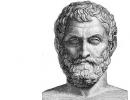Russia, the last colonial empire. Failed colonies of Russia
- Alekseev V.V., Alekseeva E.V., Zubkov K.I., Poberezhnikov I.V. Asian Russia in geopolitical and civilizational dynamics. XVI-XX centuries. - Nauka publishing house, 2004 (Abstract)
- Bakhrushin S.V. Essays on the history of the colonization of Siberia in the 16th-17th centuries - In the book. Notes of the North Dvina Society for the Study of the Local Region, vol. IV.
- Ivanov V.N. The entry of North-East Asia into the Russian state. - Novosibirsk: Science, 1999
- Komleva N. A. Geopolitical expansion (Essence, actors, forms of implementation): Dis. ... Dr. Polit. Sciences: 23.00.02: Ekaterinburg, 2003 281 p. RSL OD, 71:04-23/14-7
- Rezun D. Ya. Russian colonization of the Trans-Urals in the 17th-18th centuries // Ural. Technical and Economic Collection. - Sverdlovsk, 1926. - Issue 8, Part 1.
- Shunkov V.I. Essays on the history of colonization of Siberia: XVII - early. XVIII centuries - Moscow, Publishing House of the USSR Academy of Sciences, 1946 (1951)
- Bassin, Mark. Imperial visions: nationalist imagination and geographical expansion in the Russian Far East, 1840-1865. - Cambridge Univ. Press, 1999
- Dmytryshyn, Basil. To Siberia and Russian America: three centuries of Russian eastward expansion. - Portland, Oreg. : Western Imprints, 1985
- Godet, Martine. Stratégies impériales: expansion, colonisation, integration, conversion. - Paris: Éd. de l"École des Hautes Études en Sciences Sociales, 2004
- Hoetzsch, Otto. Rußland in Asien: Geschichte einer Expansion. - Stuttgart: Dt. Verl.-Anst., 1966
- Hunczak, Taras, Kohn, Hans. Russian imperialism from Ivan the Great to the revolution.- New Brunswick, N.J., Rutgers University Press, 1974
- John L. Evans. Russian expansion on the Amur, 1848-1860: the push to the Pacific. - Lewiston, NY: Mellen, 1999
- Kendirbaeva, Gulnar. Land and people: the Russian colonization of the Kazak Steppe. - 1. Aufl. - Berlin: Schwarz, 2002
- Kotilaine J. T. Russia’s foreign trade and economic expansion in the seventeenth century. - Leiden: Brill, 2005
- Kuliabin A. Semine S. Some of aspects of state national economy evolution in the system of the international economic order.- USSR ACADEMY OF SCIENCES FAR EAST DIVISION INSTITUTE FOR ECONOMIC & INTERNATIONAL OCEAN STUDIES Vladivostok, 1991
- LeDonne, John P. The grand strategy of the Russian Empire, 1650-1831. Oxford Univ. Press, 2004
- Pirchner, Herman. Reviving greater Russia? : the future of Russia’s borders with Belarus, Georgia, Kazakhstan, Moldova and Ukraine. - Wash. D.C. : American Foreign Policy Council; Lanham: Univ. Press of America, 2005
- Sahni, Kalpana. Crucifying the Orient: Russian orientalism and the colonization of Caucasus and Central Asia. - Bangkok: White Orchid Press, 1997
- Thomson, Gladys Scott. Catherine the Great and the expansion of Russia. - London, Published by Hodder & Stoughton for the English Univ. Press, 1985. 17. Edition
- Vernadskij, Georgij V. The Expansion of Russia. - New Haven: Yale Univ. Press, 1933
- Witzenrath, Christoph. Cossacks and the Russian Empire, 1598-1725: manipulation, rebellion and expansion into Siberia. - London: Routledge, 2007
In 1815, the Russian-American Company reached an agreement with the leader of the Hawaiian island of Kauai. He came under the protection of the Russian Empire.
Do you think only the British Empire had its numerous colonies around the world, the French and the Spanish? But no. Once upon a time, the Russian Empire also had its own colonies, and this was not only the well-known Alaska. Today you will learn the seemingly most unusual places where Russians left their mark on history as owners of islands, countries and localities. However, big politics prevented the promising initiatives of the Russian colonists.
Hawaii. In 1815, the Russian-American Company reached an agreement with the leader of the Hawaiian island of Kauai, according to which he and the population under his control came under the protection of Russia. The new colony was headed by Georg Anton Schaeffer. In 1816-1817, three fortresses were built on the island, named after Alexander I, Empress Elizabeth and Barclay de Tolly. The Hanapepe River was renamed Don, and the native leaders received Russian surnames. But the Russian government did not appreciate the importance of the acquisition. The Americans began to actively dislodge the Russians, and our colonists were forced to leave Hawaii and return to Alaska.
California. In the spring of 1812, 25 Russian colonists and 90 Aleuts founded the settlement of Fort Ross here. At that time, California was controlled by the Spanish, and San Francisco was a small Catholic village. The real owners of the territory were the Indians. The Russians bought the local lands from them for three pants, two axes, three hoes and a couple of strings of beads. The colony in the fortress was never attacked while it existed on this site. In 1841, it was sold to Mexican citizen John Sutter due to the unprofitability of maintaining the territory.
Somalia. In 1888, a steamship with Cossacks on board, headed by a certain Ashinov, set off from Odessa to Ethiopia, and a month later sailed to the shores of French Somalia. The French did not interfere with the landing of the Cossacks, because they thought that they had sailed here with a Christian mission for the local population. But Ashinov had other plans. He found an abandoned Fort Sagallo in the vicinity and created a colony there, renaming it New Moscow, and declared the adjacent lands Russian territory. The French were very surprised by such audacity and wrote about their dissatisfaction to Emperor Alexander, who in his response said that Russia would not mind if France took measures to expel the Russian detachment from its territory.
Germany. The city of Jever is located on the shores of the North Sea and once belonged to the Russian Empire. Since the 17th century, the city was owned by the Anhalt-Zerbst princes, to whose family Empress Catherine II herself belonged. When the last prince of Anhalt-Zerbst died in 1793, she inherited Jever. The city became part of the Russian Empire and remained under its crown until 1807, when Napoleon occupied it. In 1813, French troops were expelled from the city, and it again became Russian until 1818, when Emperor Alexander I ceded it to his relatives - the Dukes of Oldenburg.
Tobago Island. Since 1652 it was a colony of Courland, which became part of the Russian Empire. And in 1661 these territories came under the use of England. When Courland became part of the Russian Empire, Catherine II unsuccessfully tried to sue this island from the British until 1795.
Thailand. Once this country was called Siam, and its kings sought the protection of the Russian Empire, being sandwiched between the British and French colonies. In 1880, Siam even wanted to conclude a friendly alliance. And in 1897, one of its kings, Chulalongkorn, arrived in the capital of Russia with a secret proposal that Russia would become his dominion. But the cunning British still violated the plans, citing the fact that the Russians would send him to Siberia, and Siam would simply become a new Russian colony.
Indonesia. When some principalities of this country fought with Holland, they also wanted to come under Russian citizenship. For several years, the Russian permanent consul in Indonesia, Mikhail Bakunin, suggested that Emperor Nicholas II establish trade ties with the island state. But His Majesty considered that friendship with England was more important to him than these places.
Papua New Guinea. The great Russian traveler and scientist Nikolai Nikolaevich Miklouho-Maclay tried to annex New Guinea to Russia. In 1883, he met with Emperor Alexander III and made him a proposal to create a colony there, citing the fact that otherwise England or Germany would do it. But the king remained indifferent to his proposal.
Numerous islands of Polynesia were discovered by Russian navigators: Arakcheev, Volkonsky, Krusenstern, Spiridov, Barclay de Tolly, Chichagov, Kutuzov, Wittgenstein, Bellingshausen. But the Russian rulers did not need them, but France was not too lazy to place its colonies there. The same thing happened with the discovery of Antarctica. On the issue of making claims on its territory, Russia again remained passive, unlike other countries. The lack of rigidity in foreign policy also affected Russia's loss of land in the northern polar regions. Franz Josef Land is now disputed by Norway, Wrangel Island by the USA. The Spitsbergen archipelago was ceded to Norway due to the indecisiveness of Comrade Molotov.
Of course, Russia was a colonial empire. And in a sense, she remains so even now, despite any shocks. And despite the fact that the classic colonial empires have all essentially collapsed long ago, Russia (now the Russian Federation) is the only one of all the empires of the past that, despite everything, was able to retain many annexed and conquered territories. Unlike England, France or Spain. It is rightly noted in the article that in order to be a colonial empire it is not necessary to sail across the seas and oceans as the Spaniards or the French did, you can have the same dependent territories on the continent. It was quite rightly said that colonial empires can be divided into 2 types: Maritime and Continental (or land). The traditional classic MARINE colonial empires were the Portuguese, Spanish, English, French and Dutch. All these countries had dependent overseas territories, from which resources were siphoned off for the needs of the European metropolises. Spain and Portugal exported gold in galleons from South America, England, Holland and France pumped out resources with all their might from America, Africa, India, Indochina, Southeast Asia, Australia and the territories of the Pacific basin. All these empires, firstly, had excellent access to warm seas and oceans. Secondly, they were the most highly developed states of their time. A convenient coastal location and developed industry allowed these states to have a huge and strong fleet, which made it possible to sail long distances and easily conquer distant and technically backward natives.
The second type of colonial empires were continental, or land-based. These included the Russian, Ottoman, as well as empires of more ancient times, such as the Persian, Roman, Mongolian and Holy Roman. These empires focused primarily on the colonization of the continent and the incorporation of neighboring states and territories, with the subsequent exploitation of these lands in favor of the mother country. We can say with all confidence that Russia, Turkey, and earlier Rome, Persia and the Genghisids conquered lands not for the purpose of altruism or free distribution of all sorts of blessings to the local, conquered population, but for the purpose of enriching the metropolis. And dependent territories, as well as overseas colonies of European states, paid their tribute and devastated their resources in favor of the metropolises. Which is essentially the same thing. Russia, just like all other European states, expanded its territory. Moreover, it actively expanded in all directions of the world. In the West, having smashed into pieces the eternal enemy - Poland, it included both Poland itself and the lands of Ukraine and Belarus dependent on Poland (these are rich black soils, coal, metals). In the East - with the help of the Cossacks, she conquered Siberia, conquered Kazan, annexed the territories of Chukotka and the Far East (oil, gas, gold, diamonds, rare earth metals, precious stones). In the South, she annexed Crimea, conquered the Caucasus, destroying Turkish influence there (oil, manganese, rare earth metals). In the North, having defeated its other principal enemy - Sweden, it annexed Finland and the territories near the Poles. So... as they say.
Despite the fact that all the European and Asian colonial empires of the past collapsed long ago, retaining at best only hundredths of a percent of the territories that they had in their glorious past, Russia, despite any shocks, although it also lost many lands , but on the whole it was able to preserve the main composition of its conquered and subjugated lands, the resources of which it confidently uses to this day. So we can say that Russia is perhaps the only colonial empire today that has been able to survive to this day.
There were once Russian colonies in America, Africa, and on the current territory of Germany. There was New Moscow in Somalia, and the Don River flowed in California. However, the initiatives of the Russian colonists were hampered by big politics.
Hawaii
In 1815, the Russian-American Company (RAC), which was in charge of Alaska and Kamchatka, reached an agreement with the leader of the Hawaiian island of Kauai. According to the agreement, he, together with the population subject to him, came under the protection of Russia. A German in the Russian service, Georg Anton Schaeffer, was in charge of the arrangement of the new colony. In 1816-1817, three fortresses were built by local residents, named in honor of Alexander I, his wife Empress Elizabeth and Barclay de Tolly (only the remains of the stone foundation of the Elizabethan fortress have survived to this day). The Hanapepe River was renamed Don. Local leaders received Russian surnames (Platov, Vorontsov). Unfortunately, the central government did not appreciate the importance of the new acquisition. The following verdict came from St. Petersburg: “The Emperor deigns to believe that the acquisition of these islands and their voluntary entry into his patronage not only cannot bring Russia any significant benefit, but, on the contrary, in many respects is associated with very important inconveniences.” Thus, the Russian colony, created in record time, was actually left to the mercy of fate. Unlike Tsar Alexander I, the Americans really appreciated the importance of the islands and began to actively drive out the Russians from there. In the village of Waimea, American sailors attempted to lower the Russian flag, but the banner was defended by Hawaiian soldiers. On June 17 (29), 1817, after an armed clash in which three Russians and several Hawaiians were killed, Russian colonists were forced to leave Hawaii and return to Alaska.
Fort Ross
Russian colonies in Alaska - territories with a harsh climate - suffered from food shortages. To improve the situation, expeditions to California were organized in 1808-1812 to search for fertile lands. Finally, in the spring of 1812, a suitable location was found. On August 30 (September 11), 25 Russian colonists and 90 Aleuts founded a fortified settlement called Ross. At that time, California was owned by the Spaniards, but the territories were practically not colonized by them. Thus, San Francisco, located 80 km south of the Russian colony, was just a small Catholic mission. The real owners of the territory where the Russians settled were the Indians. It was from them that the lands were purchased for three pairs of pants, two axes, three hoes and several strings of beads. Fortress Ross was the southernmost Russian settlement in North America. Russian names began to appear in the surrounding area: the Slavyanka River (modern Russian river), Rumyantsev Bay (modern Bodega Bay). During its entire existence, the fortress was never attacked: there were practically no Spaniards, and since 1821 there were practically no Mexicans nearby, and more or less peaceful relations were maintained with the Indians. Throughout its existence, the colony was unprofitable for the Russian-American Company, and in 1841 it was sold to a Mexican citizen of Swiss origin, John Sutter.
Russian Somalia
On December 10, 1888, a steamship with 150 Terek Cossack volunteers on board sailed from Odessa. The detachment was led by adventurer Nikolai Ashinov. The purpose of the expedition was stated to be to accompany a spiritual mission to Christian Abyssinia (Ethiopia). In 1883, Ashinov had already visited Abyssinia: posing as a representative of the Russian emperor, he negotiated with the Ethiopian negus (emperor) regarding the political and church rapprochement of the two countries. On January 6, 1889, Ashinov’s detachment landed on the coast of French Somalia (modern Djibouti). The French believed that the goal of the Russian expedition was indeed Abyssinia, and did not interfere with the Russian detachment. But, to their surprise, Ashinov found the abandoned Egyptian fort of Sagallo in the vicinity and began to settle down there. The fort was renamed New Moscow or the village of Moskovskaya, and the land fifty miles along the coast and one hundred miles inland was declared Russian territory. A French officer who arrived at the fortress demanded that Sagallo be left as soon as possible. Ashinov refused. France was then in an allied relationship with Russia, and local authorities did not dare to take independent actions to expel from their territory, albeit uninvited, representatives of a friendly power. Correspondence began between Paris and St. Petersburg. Emperor Alexander reacted to Ashinov’s adventure quite sharply: “We definitely need to get this brute Ashinov out of there as soon as possible... he will only compromise us, and we will be ashamed of his activities.” Ashinov’s adventure could hinder the successfully developing process of Russian-French rapprochement. The French government was informed that Russia would not mind if France took measures to expel the Russian detachment from its territory. Having received carte blanche from the Russian government, the French sent a squadron consisting of a cruiser and three gunboats to Sagallo. After Ashinov, obviously not understanding the seriousness of the situation, again refused to submit to the demands of the French, they began shelling the fortress. Several Russians were killed and wounded. Finally, Ashinov’s shirt was raised over Sagallo as a white flag. The settlers were handed over to the Russian warship Zabiyaka, which arrived for them, and took them home.
Jever
On the shores of the North Sea is the small German town of Jever, where the tart beer Jever Pilsener is brewed. This beer could well have had the inscription “Made in Russia” on it - the fact is that this city once belonged to the Russian Empire. Since the 17th century, the city was in the possession of the Anhalt-Zerbst princes. Sofia Augusta Friederica, better known to us as Empress Catherine II of Russia, also belonged to the same family. Therefore, when the last prince of Anhalt-Zerbst died in 1793, Jever was inherited by his only sister, Tsarina Catherine. The city became part of the Russian Empire. The city remained under the Russian crown until 1807, when Napoleon occupied it. In 1813, French troops were expelled from the city, and it again became Russian. But not for long: in 1818, Alexander I ceded it to his relatives - the dukes of neighboring Oldenburg.
How does Russian business live, with a monarchical bias?
It's finished. It seems that Anton Bakov's many years of efforts have been crowned with success. Tomorrow in Yekaterinburg a memorandum will be presented between the government of the Gambia and... the State of the Imperial Throne, writes Russian newsmaker Alexander Ustinov, for Rupolit.net.
Comment from« Walk the Fields»: This article, like nothing else, demonstrates the understanding of the modern Russian elite, which still lives by the ideas of the 19th century. The idea put forward by the Imperial Throne, in terms of its absurdity, is not much different from saving the capital of the Russian elite under sanctions. However, we invite readers to familiarize themselves and draw their own conclusions:
The leader of the monarchist party, political strategist, politician, businessman and Archchancellor of the Imperial Throne Anton Bakov will present tomorrow the agreement that he managed to sign with the Government of the Gambia on behalf of the Government of the Imperial Throne.
According to preliminary information, the empire will be located on artificial islands in the territorial waters of the Gambia.
In June 2013, the Monarchist Party announced the acquisition of an heir to the imperial all-Russian throne - he became a descendant of Alexander II, Prince of the Imperial Blood Nikolai Kirillovich (Prince Karl-Emich-Nikolaus of Leiningen), who adopted a Russian name after converting from Lutheranism to Orthodoxy. This gave him the right to inherit the throne in accordance with the Basic State Laws of the Russian Empire.
Nikolai Kirillovich was appointed regent of the “Russian Empire” and a member of the supervisory board of the Imperial Palace Fund, and his birthday, June 12, coincided with Russia Day in the Russian Federation. Subsequently, this day was declared Imperial Day.
At the beginning of 2015, Bakov came up with an initiative to create an offshore zone based on the Montenegrin site, designed to serve the interests of Russian business in the context of anti-Russian sanctions. Other international projects of the Erzchancellor are also aimed at this possibility of using this territory. For example, Anton Bakov reported on negotiations on cooperation with the authorities of neighboring Macedonia - in particular, he met with the Prime Minister of this country, Nikola Gruevski. During a constructive dialogue held at a high level between the two leaders of state, a framework agreement was signed on expanding investments of the Imperial Throne in the economy of the Republic of Macedonia. In addition, meetings are held with Macedonian and Montenegrin clergy.
Bakov also reported on negotiations with the authorities on the issue of recognition and plans to join the UN, and pointed out that Montenegro's independence in 1878 was associated with the actions of Alexander II, Karl-Emich's great-great-great-grandfather. Scheduled meetings of the Government of the Imperial Throne are taking place. Thus, on April 3 and 7, 2015, the draft Law on the Nobility was considered, changes were made to the composition of the government, as well as to the Imperial Protocol and the contents of the Imperial Court.
However, the Montenegrin authorities took a break in the negotiations, but Bakov did not stop and drew attention to other states that were ready to accept investments.
At the end of 2015, Anton Bakov turned his attention to Central America, where he also held a number of negotiations with the leadership of countries such as Antigua and Barbuda. It was at this time that Anton Bakov negotiated with UN representatives, who were quite loyal to Anton Bakov’s project.
Earlier, Anton Bakov told our publication that the negotiations in Gambia were the result of many years of effort and painstaking diplomatic work by the apparatus of the Imperial Throne.
In 2016, Anton Bakov developed active activities on the territory of the island state of Kiribati. There, Bakov had a number of relatively successful negotiations, and a significant part of the political establishment agreed to support recognition of the Imperial Throne. However, eventually the negotiations also had to be paused due to political changes in the local government.
In a situation where The Gambia has recognized the Imperial Throne, negotiations with other countries on recognition can make significant progress. Since the Imperial Throne, being a partially recognized state, has no conflicts with other states, there are no serious barriers to recognition of this country, which means we can expect a series of further recognitions of the Imperial Throne from other countries.






